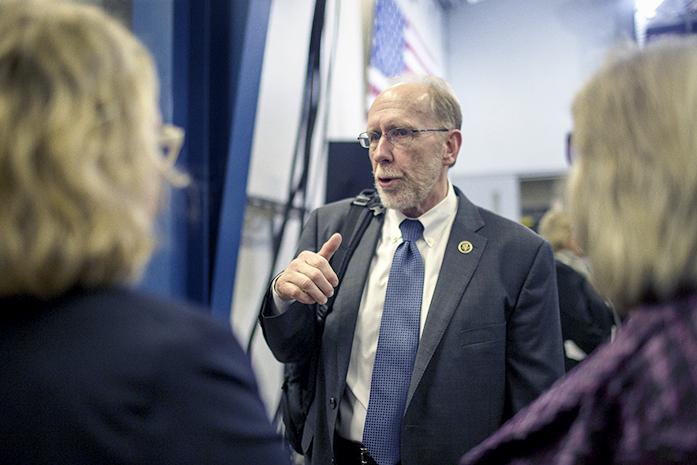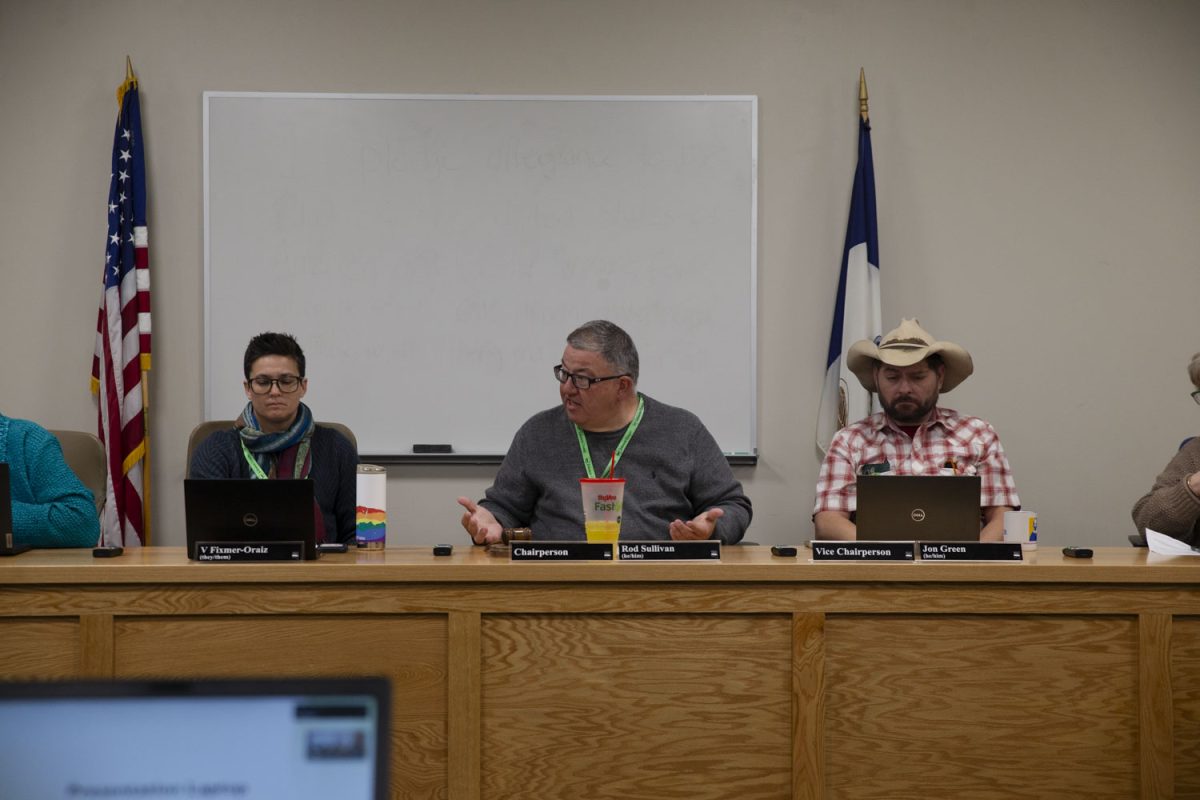Trump signed a religious-liberty executive order Thursday, and while the gay community has been a well-known critic of similar moves, others are focused on religious groups’ exemptions from the Johnson Amendment, a U.S. tax-code provision that prohibits nonprofit organizations from endorsing or opposing political candidates.
Rep. Dave Loebsack, D-Iowa, said his concern lies in a church’s ability to affect state law.
“America has a long, proud history of separation of church and state,” Loebsack said in an email statement to The Daily Iowan. “And I am concerned about the president’s dedication to it.”
University of Iowa alum Andrew Ritland, a former legislative fellow with the North American Religious Liberty Association, said not only is the Johnson Amendment bad from a governmental perspective but also from a religious perspective.
“You’re saying … you want to get a tax-exempt status — which is OK, because other organizations get that same status,” Ritland said. “But now, that becomes problematic, because not only do you get a tax-exempt status, you also get a benefit that no one else gets.”
Ritland said advocating for religious liberties through the government is shortsighted.
“As a Christian, I also think it’s dangerous — [people] could be advocating for policies that, in a Christian view, they believe are biblically supported [such as] right to life or treatment of the poor,” he said. “However, we shouldn’t as Christians say, ‘I’m going to align my biblically based values with a particular party or a person’ — that shouldn’t be the job of a religious organization, that should be left up to the religion’s adherents. It’s not good from a Christian perspective because you start to entangle religion in a very concerning way with politics.”
A similar law was enacted in April 2015, when Vice President Mike Pence, then the governor of Indiana, was scrutinized when a pizza place in his home state refused to cater to a gay couple’s wedding, citing the Religious Freedom Restoration Act.
Like Thursday’s executive order, the act did not explicitly condone discrimination against members of the LGBTQA+ community, but some members of the community are still concerned the rule will facilitate discrimination against them.
For UI freshman Hannah Archambeau, growing up gay in her South Side Chicago neighborhood meant glares, whispers, and even vandalism to her home. But despite Illinois’ blue-state status, Archambeau said, she feels more secure holding hands with her girlfriend in the streets of Iowa City than in Chicago.
“It just further strips me of the little rights I already had,” Archambeau said. “There’s a difference between inalienable and intrinsic rights and prejudice.”
Historically, Ritland said, he believes religion has been a handmaiden of the government, and that, he believes, the connection has corrupted both the church and state.
“It is problematic when you have a neutral law like the Johnson Amendment, and you give exceptions to religious entities — what you find here is that, on one hand, you have the free exercise of religion but also the conflict in the Establishment Clause,” he said. “Those two tension points are where you feel a lot of the issues.”
For Ritland, these tensions are problematic from both a religious-liberty perspective and from a Christian perspective.
“Christians should be focused on policy,” he said. “Not politics.”
The DI reached the office of Rep. David Young, R-Iowa, but was declined a comment.







